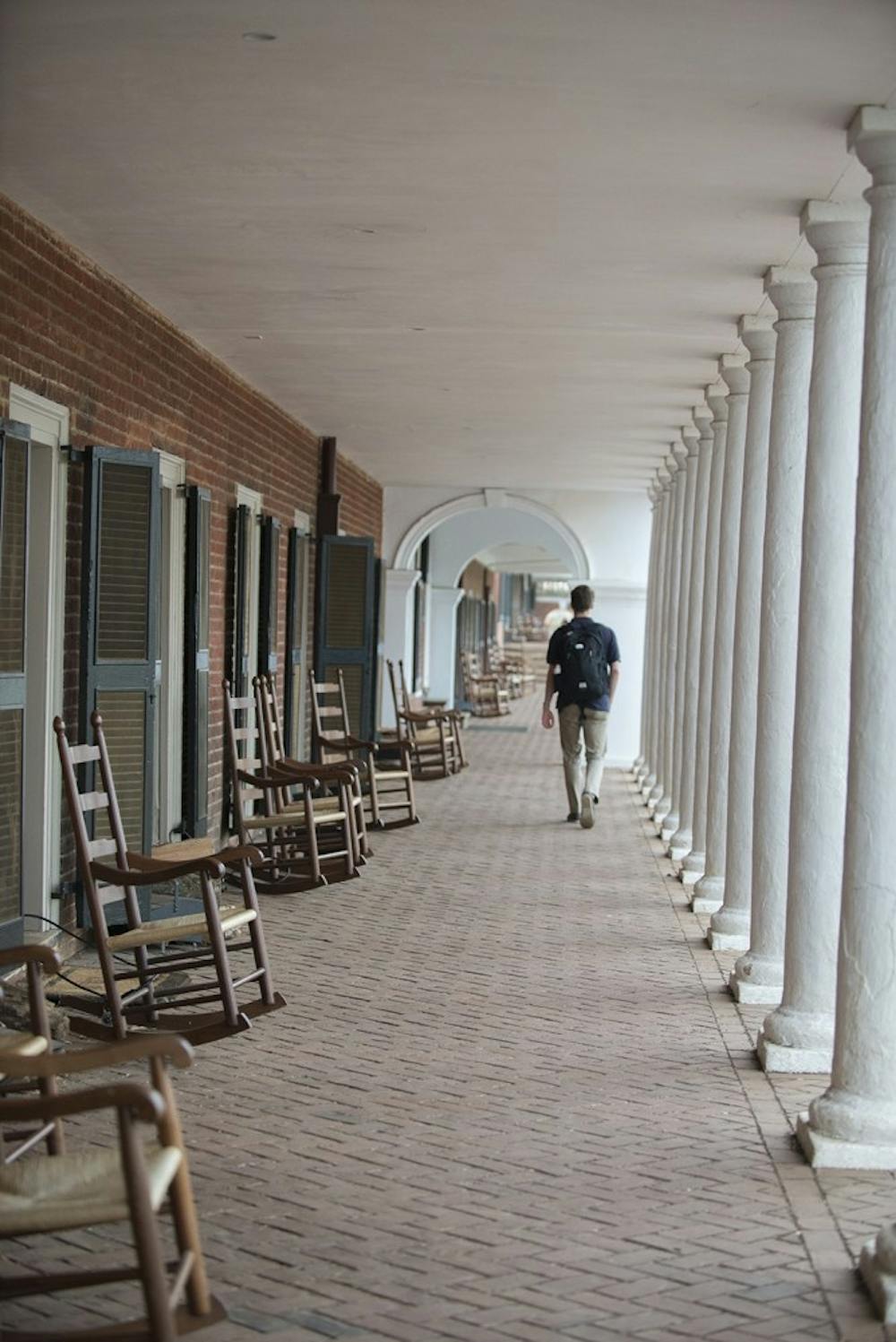Last month, I argued that the Lawn selection process should only consider an applicant’s merit, rather than an applicant’s race, socioeconomic background or area of study. Thus I oppose the creation and use of the calibration committee, which is designed to adjust the decisions of the blind selection process to ensure the Lawn more accurately reflects the University. I have received extensive feedback since then, so for the sake of clarification, allow me to restate my case and respond to the most common objections.
It seems to me that the core question surrounding the Lawn debate boils down to a simple question: Should the Lawn be a reward, or a mirror? The status quo for decades — at least until the creation of the calibration committee — has been a reward. That is, through a blind process a selection committee chooses the applicants the committee feels most merit the honor of a Lawn room. As I argued last month, I favor this system, as I think it best preserves the prestige of the Lawn as a University institution.
Many other students believe the Lawn should better reflect the University as a whole. I understand the appeal of this idea: the Lawn is perhaps the University’s most visible representation of what its students have to offer, so of course the Lawn selection process should ensure no subset of the University goes unnoticed. Hence the desire to guarantee relatively proportional representation for students of all ethnicities and majors.
For those who hold this view of how the Lawn ought to be, we’ll simply have to agree to disagree.
Other commenters, however, challenge my argument on my own terms. The most substantive critique has come from fellow Opinion columnist Alexander Adames. He does not explicitly advocate the use of the calibration committee, but he does argue my position — and presumably the blind selection process — has far too narrow a conception of merit, which disadvantages lower-income students. He may be correct. Well-off students enjoy advantages throughout life which can factor into higher grade point averages and more time devoted to University engagements. Less advantaged students could be said to be more hard-working, a criteria I assert the Lawn seeks (and should seek) to reward.
Adames errs, however, when he writes: “Though Winesett may want readers to believe otherwise, hard work and intellectual ability cannot easily be measured by solely looking at a few numbers and disregarding their contexts.” I agree, which is why I don’t argue the selection process should only consider GPA and ignore context. Students are asked to discuss their academic path as well as their extracurricular activities during the Lawn application process, which allows the selection committee to grasp how certain applicants had and have to achieve more than their more privileged peers. In other words, the context Adames wants the selection process to consider is already taken into account by the selection committee’s emphasis on personal essays.
Adames also challenges my contention that we should be concerned about the use of the calibration committee eroding the Lawn’s prestige, stating: “Winesett fails to explain the consequences of people losing this respect for the Lawn … If one’s goal is maintaining respect for the sake of having respect, then such a goal is nothing but circular reasoning.” If I viewed the Lawn’s prestige instrumentally, as just a contrived way to encourage people to become better students so they’d have a chance to earn a Lawn room, then my circular logic would be a problem. But my argument is not a consequentialist one. Rather, I argue that the Lawn as the pinnacle of University achievement has intrinsic worth. Even if a loss of respect for the Lawn does not result in a drop in applications, by resorting to “calibration” to supplant the blind selection process, we still will have lost something worth preserving.
I disagree more strongly with Adames’ implicit implication that the whole idea of selecting Lawn residents solely based on “narrow” conception merit is problematic because “we live in a society which presumes success is not primarily determined by external forces,” and thus, “we should expand our understanding of merit to be considerate of unequal starting lines.” If this expanded understanding of merit is reflected only in the blind process through greater emphasis on essays asking about an applicant’s personal journey, then this may be warranted. But if Adames is suggesting that a calibration committee is necessary to judge this expanded understanding of merit by examining an applicant’s background in a non-blind fashion, then his proposal goes too far.
Adames asserts that my “traditionalist line of thinking falls flat,” so citing a dead white male from the 19th century may only underscore his criticisms of my piece. Nevertheless, British Prime Minister Benjamin Disraeli put it well some two hundred years ago: “Man is not the creature of circumstances, circumstances are the creatures of men.” Context and external factors are important, so it’s a good thing the selection committee already has a way to consider them through the Lawn essay requirements. But external circumstances should not be viewed as so deterministic as to require a calibration committee separate from the standard, blind selection process the Lawn has traditionally used.
Matt Winesset is an Opinion columnist for The Cavalier Daily. He can be reached at opinion@cavalierdaily.com.





